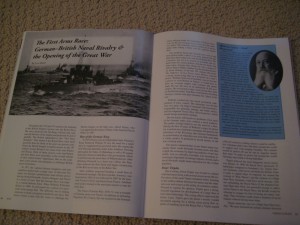One of my favorite writers is A.J. Liebling. This recent review of the new Library of America volume of his Six Armies in Normandy . The reviewer justly praises John Keegan’s book Six Armies in Normandy, then compares Keegan’s writing about the invasion to Liebling’s on-the-scene reportage.
. The reviewer justly praises John Keegan’s book Six Armies in Normandy, then compares Keegan’s writing about the invasion to Liebling’s on-the-scene reportage.
His account of the Normandy Invasion is pretty much limited to a single cross-channel trip by a single landing craft. Its art is almost the inverse of Keegan’s. It begins in boredom, unacknowledged anxiety, uncertainty; its later moments of danger and violence are realized largely after the fact. It is so small a fragment of the gross event that it has almost no significance in the success or failure of the invasion. Liebling later found out that of the ten landing craft that were part of the group with which he went in, four were sunk before they had unloaded the men they were carrying, “a high proportion of whom were killed.” …
Liebling was, he says, on the upper deck during the four minutes it took for the two platoons the landing craft carried to disembark. “I looked down at the main deck and the beach-battalion men were already moving ahead, so I knew that the ramps must be down.” Just as the stern anchor was being taken up “something hit the ship with the solid clunk of metal—not as hard as a collision or a bomb blast; just ‘clink.’” This is the direct experience of what was later discovered to have been a seventy-five-millimeter antitank shell with a solid-armor-piercing head hitting the forward anchor winch, being deflected toward the stern, tearing through the bulkhead, smashing the ramp winch, breaking into several pieces, and killing two of the crew. Clink.
We read of spectacular and overtly horrific events on D-Day. Yet, often death came in seemingly trivial form. People are walking along, in photos of the invasion, apparently nonchalant, next to them, not five feet away, someone is falling, hit by German fire. Tanks that are supposed to “swim” ashore are deposited in the water too far off, they drift off target, they try to steer toward where the troops are pinned down on Omaha Beach, off-angle in the surf, they founder, they sink like stones, all their crews die. People who think they have reached safety, behind barriers, away from the enemy, are smacked, lethally, by random shell fragments or stray bullets.
D-Day was a gargantuan, colossal undertaking. It was a juggernaut, a Moloch. It ate men with both hands. It consumed the Germans in stacks and heaps. Read about what it was like to be under the hammer of Allied naval artillery and airpower. It was like the Earth was being torn up by the roots. Few lived to tell the tale. Americans, especially at Omaha Beach, where the German resistance was strongest, also died in droves.
There was no other way to do it. The Third Reich had to die. The Allies, including the Red Army, had to kill it. There was no easy, clean or humane way to do it. They were fighting a malign enemy which had, insanely, chosen to launch a war against the entire world. It would not surrender when it was beaten, but only when it was crushed. There was no rapier thrust, no magic bullet. It was sledge-hammer blows, straight on, with men and machines, until the beast was smashed, and had bled its life away. It cost lives and it was going to cost lives.
Defeat for the Allies was possible on D-Day. Eisenhower knew that. Montgomery, the meticulous planner and unsung hero of Overlord, knew it too. Rommel, who planned to beat them, knew it.
On top of all the massive armament hurled at the Germans, the day was finally carried by the courage and will of the attackers to press on, to come to grips with the Germans, destroy them, and push inland. Napoleon said that in war the moral is to the physical as ten to one.
Let us have perpetual gratitude to the men of D-Day.
by Brynjar Lia, and I thought it sounded interesting. However, I was inspired to order the book by an excellent recent review essay. I strongly suggest you read the review, even rather than reading this post.
